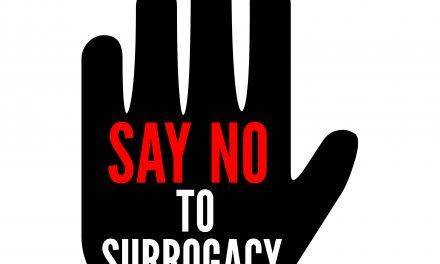Last week while in the United Kingdom, I kept seeing the same advertisement posted throughout the London Underground:
No one to say good morning to.
No one to bless you when you sneeze.
No one to take tea with.
Or whisky, for that matter.
No one on the end of the phone.
No one to share anything with: a cake, a laugh, or a problem.
No one to make one day any day different from the last.
No one to turn to.
No one, but no one,
should have no one.
The advertisements were sponsored by an organization, AgeUK, which aims “to provide companionship, advice, and support for the millions of people facing later life alone.”
It’s a noble advertising campaign—one trying to draw greater attention to an often-neglected population: the elderly. I applaud “AgeUK” and any other organization committed to both raising awareness in this regard, but also providing programs and services to remedy this problem.
But I couldn’t help but to also reflect on the tragic irony of this. At the same time that a massive media blitz was taking place to provide assistance to the elderly in the form of companionship and care, efforts were underway in the British Parliament to push for the legalization of physician assisted suicide in Britain.
Formally labeled the “assisted dying” bill, the bill is being championed by Lord Falconer of Thoroton and would allow for “competent” adults to receive medical assistance to end their life if they have less than six months to live.
In contrast, during a debate last week, Lord Robert Winston—a medical doctor who opposes the bill—stated, “‘fragile, deranged, angry and distressed’ patients would feel pressure to end their lives if the bill was passed.”
The bill is unlikely to become law this term, but the ranks of those who champion the cause of physician assisted suicide continue to grow. As of now, there are formidable opponents of the measure, both in Parliament and in the public.
“No one should have no one,” indeed. But the powerful force of those looking to simply eliminate that population—and doing so under the protection of law—should make us very afraid.
Author Profile
Latest entries
 BlogFebruary 1, 2017Applications for the Next Cohort of Paul Ramsey Institute Fellows are Now Open
BlogFebruary 1, 2017Applications for the Next Cohort of Paul Ramsey Institute Fellows are Now Open BlogApril 15, 2016This Week in Bioethics
BlogApril 15, 2016This Week in Bioethics BlogApril 12, 2016Surrogacy Show and Tell
BlogApril 12, 2016Surrogacy Show and Tell BlogApril 8, 2016This Week in Bioethics
BlogApril 8, 2016This Week in Bioethics


